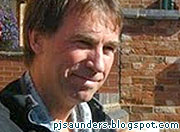Soaps such as Emmerdale distort the truth about the demand for assisted suicide, a leading pro-life ethicist has claimed.
Dr Peter Saunders, Director of Care Not Killing, says that very few tetraplegic sufferers wish to die.
And even atheist Professor Stephen Hawking has said that he is happier now than before he contracted the crippling motor neurone disease.
Distortion
Writing on his blog, Dr Saunders said that assisted suicide storylines in TV soaps involved a “serious distortion of the truth” and “the implication that a hugely disproportionate number of people with serious illness or injury wish to kill themselves”.
Emmerdale is currently running an assisted suicide storyline, in which a paralysed man asks his mother to help him end his life.
The storyline is similar to the tragic story of Daniel James, who suffered tetraplegia following a rugby injury and travelled with his parents to the Dignitas facility in Zurich to take his own life in 2008.
Representative?
Dr Saunders queries how representative Daniel James’ case is and contends that about 11,000 new spinal injury cases occur in the US every year, with about 250,000 people estimated to be living with the condition.
“On a population basis we would therefore expect about 2,000 new cases a year in the UK and 50,000 living with the condition at any one time”, he went on.
“The Guardian reported in 2009 that amongst over one hundred people who had killed themselves at Dignitas over ten years only two had tetraplegia.
“In other words”, he concluded, “the number of people with spinal cord injury wanting to kill themselves is very low indeed as a percentage of all those with the condition.”
Meaning
Dr Saunders queried why TV does not produce programmes about people like Simon Morris and Andrew Bush, who were interviewed in March by The Daily Telegraph.
They both recounted how they had been helped and supported to come through their spinal injuries to find meaning and hope.
Last week, physicist Prof Stephen Hawking, who is an atheist, said he was “happier now than before” he became disabled.
His advice to those with similar conditions is: “Don’t be disabled in spirit as well as physically.”

